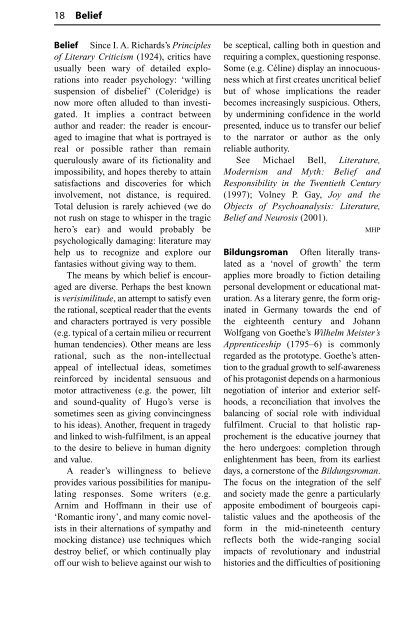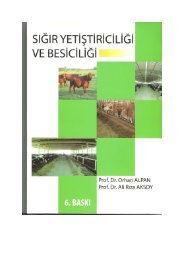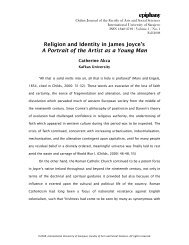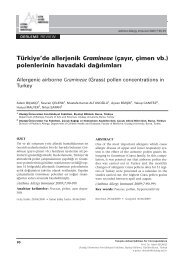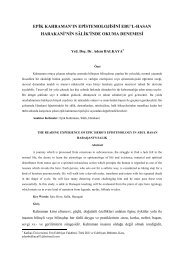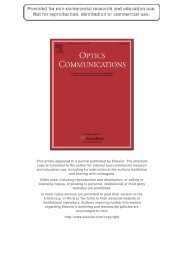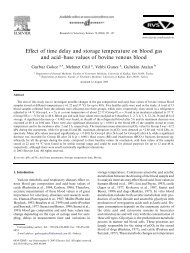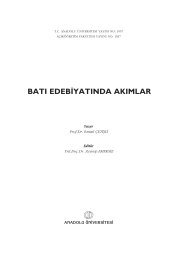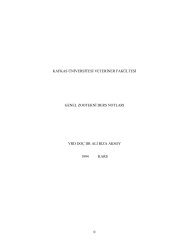The Routledge Dictionary of Literary Terms
The Routledge Dictionary of Literary Terms
The Routledge Dictionary of Literary Terms
You also want an ePaper? Increase the reach of your titles
YUMPU automatically turns print PDFs into web optimized ePapers that Google loves.
18 Belief<br />
Belief Since I. A. Richards’s Principles<br />
<strong>of</strong> <strong>Literary</strong> Criticism (1924), critics have<br />
usually been wary <strong>of</strong> detailed explorations<br />
into reader psychology: ‘willing<br />
suspension <strong>of</strong> disbelief’ (Coleridge) is<br />
now more <strong>of</strong>ten alluded to than investigated.<br />
It implies a contract between<br />
author and reader: the reader is encouraged<br />
to imagine that what is portrayed is<br />
real or possible rather than remain<br />
querulously aware <strong>of</strong> its fictionality and<br />
impossibility, and hopes thereby to attain<br />
satisfactions and discoveries for which<br />
involvement, not distance, is required.<br />
Total delusion is rarely achieved (we do<br />
not rush on stage to whisper in the tragic<br />
hero’s ear) and would probably be<br />
psychologically damaging: literature may<br />
help us to recognize and explore our<br />
fantasies without giving way to them.<br />
<strong>The</strong> means by which belief is encouraged<br />
are diverse. Perhaps the best known<br />
is verisimilitude, an attempt to satisfy even<br />
the rational, sceptical reader that the events<br />
and characters portrayed is very possible<br />
(e.g. typical <strong>of</strong> a certain milieu or recurrent<br />
human tendencies). Other means are less<br />
rational, such as the non-intellectual<br />
appeal <strong>of</strong> intellectual ideas, sometimes<br />
reinforced by incidental sensuous and<br />
motor attractiveness (e.g. the power, lilt<br />
and sound-quality <strong>of</strong> Hugo’s verse is<br />
sometimes seen as giving convincingness<br />
to his ideas). Another, frequent in tragedy<br />
and linked to wish-fulfilment, is an appeal<br />
to the desire to believe in human dignity<br />
and value.<br />
A reader’s willingness to believe<br />
provides various possibilities for manipulating<br />
responses. Some writers (e.g.<br />
Arnim and H<strong>of</strong>fmann in their use <strong>of</strong><br />
‘Romantic irony’, and many comic novelists<br />
in their alternations <strong>of</strong> sympathy and<br />
mocking distance) use techniques which<br />
destroy belief, or which continually play<br />
<strong>of</strong>f our wish to believe against our wish to<br />
be sceptical, calling both in question and<br />
requiring a complex, questioning response.<br />
Some (e.g. Céline) display an innocuousness<br />
which at first creates uncritical belief<br />
but <strong>of</strong> whose implications the reader<br />
becomes increasingly suspicious. Others,<br />
by undermining confidence in the world<br />
presented, induce us to transfer our belief<br />
to the narrator or author as the only<br />
reliable authority.<br />
See Michael Bell, Literature,<br />
Modernism and Myth: Belief and<br />
Responsibility in the Twentieth Century<br />
(1997); Volney P. Gay, Joy and the<br />
Objects <strong>of</strong> Psychoanalysis: Literature,<br />
Belief and Neurosis (2001).<br />
MHP<br />
Bildungsroman Often literally translated<br />
as a ‘novel <strong>of</strong> growth’ the term<br />
applies more broadly to fiction detailing<br />
personal development or educational maturation.<br />
As a literary genre, the form originated<br />
in Germany towards the end <strong>of</strong><br />
the eighteenth century and Johann<br />
Wolfgang von Goethe’s Wilhelm Meister’s<br />
Apprenticeship (1795–6) is commonly<br />
regarded as the prototype. Goethe’s attention<br />
to the gradual growth to self-awareness<br />
<strong>of</strong> his protagonist depends on a harmonious<br />
negotiation <strong>of</strong> interior and exterior selfhoods,<br />
a reconciliation that involves the<br />
balancing <strong>of</strong> social role with individual<br />
fulfilment. Crucial to that holistic rapprochement<br />
is the educative journey that<br />
the hero undergoes: completion through<br />
enlightenment has been, from its earliest<br />
days, a cornerstone <strong>of</strong> the Bildungsroman.<br />
<strong>The</strong> focus on the integration <strong>of</strong> the self<br />
and society made the genre a particularly<br />
apposite embodiment <strong>of</strong> bourgeois capitalistic<br />
values and the apotheosis <strong>of</strong> the<br />
form in the mid-nineteenth century<br />
reflects both the wide-ranging social<br />
impacts <strong>of</strong> revolutionary and industrial<br />
histories and the difficulties <strong>of</strong> positioning


